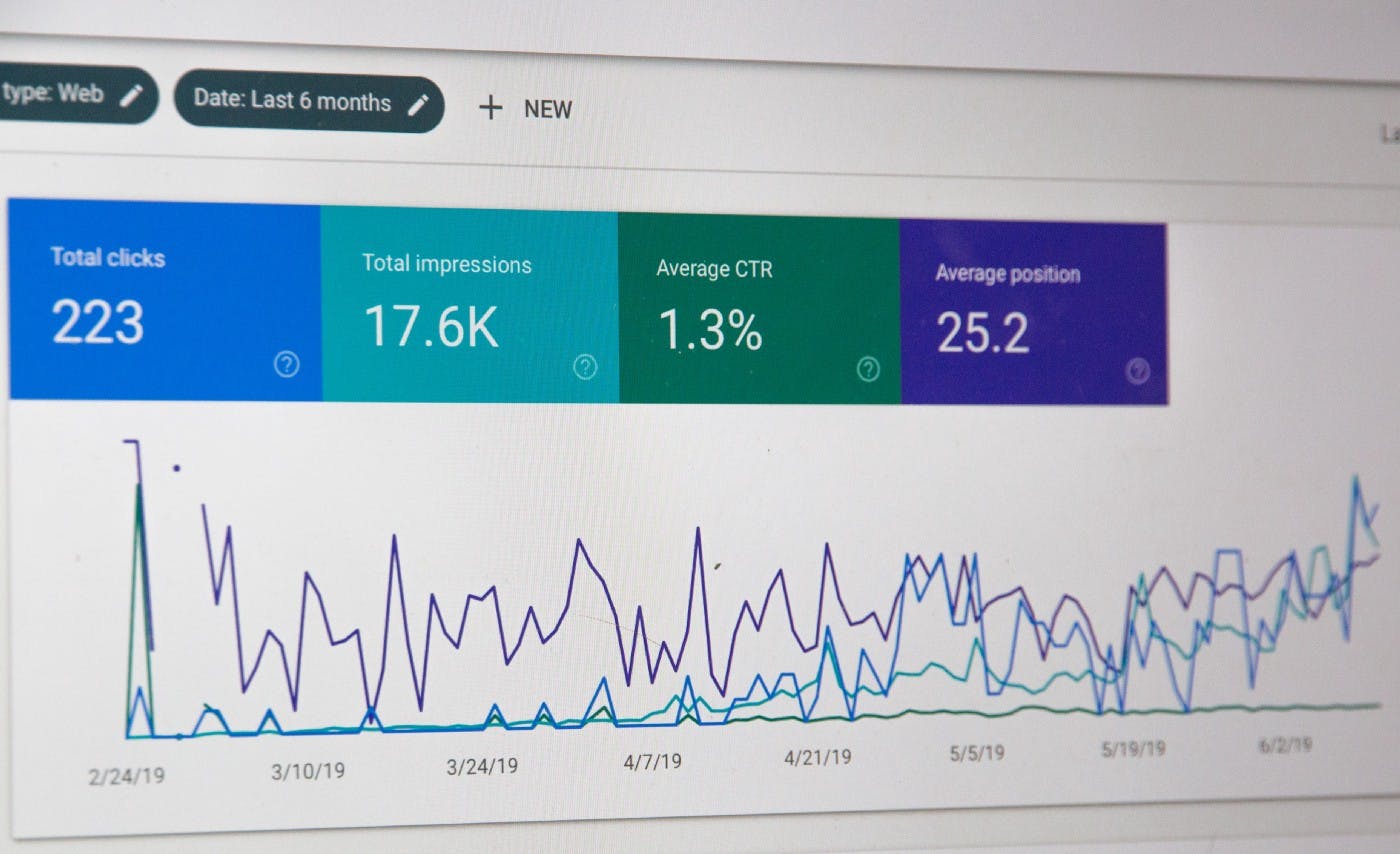
Meet Abigail Miller

From pastry chef to SEO marketing.
Introducing Abigail Miller, whose career change 8 years ago took her from working as a pastry chef in Michelin Star restaurants to her current role in SEO marketing. Her career-change story began in the demanding world of patisserie kitchens, followed by a chance encounter which propelled her into the world of digital marketing.
Abigail’s career change demonstrates the importance of finding a balanced career you love, rather than worrying about whether or not you can ‘cut it’ where you are now. Her story also illustrates how career opportunities can take us by surprise in the unlikeliest of places.
Even with Lady Luck lending a helping hand towards making a change, Abigail’s journey highlights that it is up to each of us to grab the opportunities that come our way. In her interview she also encourages us to recognise the great value of making sure we ‘read, read, read’, and learn, learn, learn, to get there.
Name: Abigail Miller
Location: London
Current position: Content and Localisation Manager at Vrbo
Previous job: Pastry chef
When did you make the change? 2012
What prompted you to make the change?
I had spent 4 years working in pastry kitchens. I was an apprentice at a patisserie, a commis chef in a 5-star hotel, and had a month’s work experience (or ‘stage’ in chef’s lingo) in a 3 Michelin star restaurant. Being a chef in all these different capacities gave me a clear overview of what a career in this field demands.
Whilst I had many positive experiences during this time — building strong working relationships with tight-knit teams, pushing myself physically and emotionally to my limits and of course creating (and eating) deliciously spectacular desserts — the negatives of the role started to outweigh the benefits.
I left my last role as a pastry chef after a few unexciting months of making fruit salads every night while the desserts I had spent all day preparing were overlooked by customers full from their heavy main courses. The atmosphere in the main kitchen grew increasingly toxic with senior chefs often berating their exhausted underlingsthink — Hell’s Kitchen! On one occasion, one of the pastry chefs didn’t order enough bread so the head chef kicked the fridge door so hard that he dented the stainless steel and walked with a limp for the following days. That is just one of many such stories.
It was soon after this incident that I realised the very low salary of £15k a year and working 60 hours a week, the lack of a social life resulting in missing multiple occasions with family and friends, and the physical demands this job was taking on my body — I had varicose veins appearing at age 24 — were not worth avoiding the stigma of being a chef who couldn’t cut it.
Did you know what you wanted to move into?
No! I was at a complete loss. I considered pursuing a career where I could use my knowledge of food such as a supermarket buyer. I applied to every graduate scheme I thought I might be remotely interested in. I even beat hundreds of other applicants when I was offered a graduate role with a notorious estate agency. I, fortunately, had the sense to reject it after I realised it wasn’t what I left cheffing for.
Did you face any obstacles along the way? Did you receive support and help from those around you?
I was extremely fortunate during the time I spent unemployed. I had financial and emotional support from my parents, and I was lucky enough to have an undergraduate degree under my belt. My BA degree helped when applying for entry-level roles as it is often the minimum requirement.
I had been living at home so I was able to save enough money for a solo trip to Hong Kong and Australia. If your situation allows, it is really useful when you make a career change, or even a change in jobs, to take time out to travel and recharge in between.
My career in SEO and digital marketing began with a chance encounter. When I returned from my travels, I went to a friend’s birthday party and ended up chatting to a person I vaguely knew who said they were looking for an entry-level candidate for their SEO team. This one meeting changed my life. Getting that first interview is likely the biggest challenge for anyone looking to change career.
In the spirit of complete openness, I had no idea what SEO was. I didn’t know anything about marketing as an industry. Luckily, my best friend, whose party it was and who is now a PhD in bioinformatics, coached me for my interview. I remember asking her what a URL ‘really’ was. But what was it really — bearing in mind this was common knowledge for most people over the last decades by then in 2012!
During the interview, I used the research skills I had gained during my classics BA to learn everything I could about SEO. I’m sure a lot of SEO experts would tell you that you can master 80% of the role by studying the multiple blogs and publishers dedicated to talking about SEO. The remaining 20% is learnt on the job and by experience. I believe that my enthusiasm to learn, in addition to the work ethic and confidence I had gained as a chef, saw me through the interview.
What really cemented my new career in SEO was the people I was working with. I had a fantastic manager who cared about my well-being and career progression, and who is still my friend and mentor to this day. I met clients within a few weeks of starting and was given opportunities to prove myself very early on. I realised being in a team didn’t just mean that you had each other’s backs, but also that every member of the team has something valuable to bring to the table. A career shouldn’t be all sacrifice, but also about being in a healthy, supportive environment whilst challenging oneself to succeed out of your comfort zones.
The first marketing agency I worked for had excellent training for its entry-level employees which included internal competitions and paid-for accreditations with leading marketing institutions such as the IAA. I participated and was encouraged to do so, in any training that was made available to me, from a day out for Brighton SEO, to internal competitions and presentation skills.
Do you feel like you made the right decision?
Absolutely! I love my job. I am proud of, and care about my work, my team and my employer.
Have you changed as a person since you changed career? How do you feel about your career change and your life since?
I have a much better work/life balance. I have a life other than just work. My relationships with my friends and family have deepened and I have built many new, lasting friendships from my roles in marketing.
I am also more relaxed in and out of work. This comes from job satisfaction I was nowhere near attaining in high-stress kitchen environments, where successes are never praised but mistakes are never forgiven. Before I was a chef, I had low confidence in new social situations, which I overcame in the kitchen by contending with very boisterous colleagues. However, I have built a different kind of confidence throughout my experience in marketing, where I feel surer of my abilities and the work I produce.
Are you using any of the same abilities for both careers?
When you change career, transferable skills are your most powerful selling points to a new employer. To this day, many employers like the fact I was initially a chef. Key transferable skills from kitchen to office are time management, working under pressure, organisation, teamwork, people management (at one point I was in charge of a kitchen of 5), and following instructions. These skills apply to most hospitality roles. I was going from a 60-hour week down to 35–40 hours, so I was used to working hard and being efficient with my time.
What are your future career goals?
I have just moved into a role that combines SEO and SEM (Search Engine Optimisation and Search Engine Marketing). With the ever-changing nature of online marketing, I want to pick up as many different disciplines as I can and become a fully rounded marketing strategist. However, as with my entry into the world of marketing, who knows what opportunities will present themselves in the future.
What advice would you give to someone looking to make a career change?
- Use your personal network to understand the different industries and roles out there. It’s amazing what variety of jobs you will discover that already exists around you. Many of my friends are in roles they didn’t know existed at the beginning of their careers.
- Be prepared to start at the bottom. When you change career, you may be working with people a lot younger than you who might come straight from education. Use your transferable skills to stand out from the group, which can lead to climbing the ladder faster than others.
- Take every opportunity to learn and train that you are presented with. This doesn’t necessarily mean spending a lot; there are many free resources online. Who knows, you might find your future employer at a training or networking event. Keep in mind, the larger the business you join, the more training resources they may have.
- Find a mentor. I know this is easier said than done, but if you meet someone who is willing to take the time to share their knowledge then make the most of it. Loads of leading individuals in their careers are happy to mentor when asked. Just make sure you make their time count.
What resources would you recommend to start with?
There are so many free online resources for training. Coursera is a great one to start, but you do need to take time to complete the courses. There are free training videos in multiple disciplines on YouTube. Even if it’s a quick 15-minute video, you can take something valuable away.
In my current role, when I am reviewing applications for interview candidates, I care about the knowledge and enthusiasm the candidate can demonstrate, not necessarily the expensive courses they have taken.
Also read, read, read industry publications. You can show up to an interview with the latest news about the industry that even the interviewer might not have caught up with. Changing a career is an investment. As with any new job hunt, if you are serious about it, you need to commit time. Even a couple of hours a week can make a difference.
Subscribe to Spark! for monthly perspectives from our founder on workplace transformation
Subscribe to our monthly newsletter
Get curated insights on workplace evolution, team development, and organisational culture - with practical coaching strategies to help your team thrive.
For leaders focused on building high-performing teams